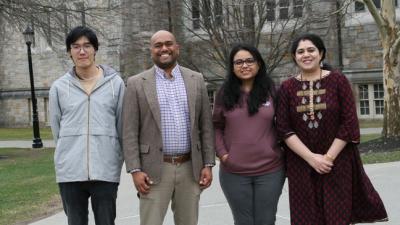RPI Announces Appointment of R. May Lee to the New Role of Vice President and Chief Strategy Officer for Institutional Impact
Rensselaer Polytechnic Institute (RPI) has announced the appointment of R. May Lee, J.D., to the new role of Vice President and Chief Strategy Officer for Institutional Impact, effective April 10, 2023. With cross-functional responsibilities, Lee will facilitate realization of President Schmidt’s vision for RPI Forward. She will work closely with senior leadership on a wide range of issues of strategic importance to RPI, with responsibility for prioritizing key initiatives and ensuring successful progress and execution.









